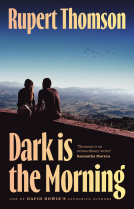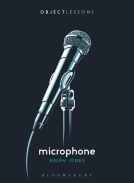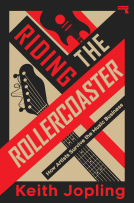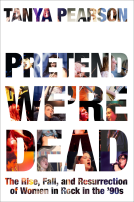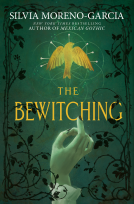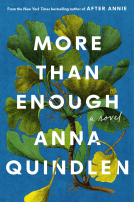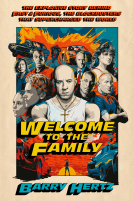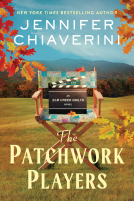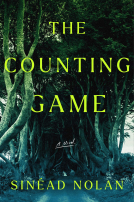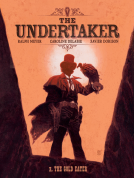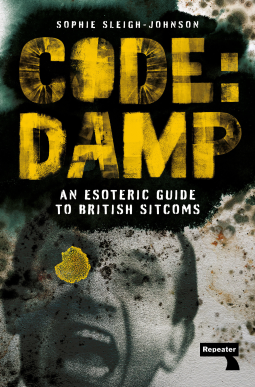
Code: Damp
An Esoteric Guide to British Sitcoms
by Sophie Sleigh-Johnson
This title was previously available on NetGalley and is now archived.
Send NetGalley books directly to your Kindle or Kindle app
1
To read on a Kindle or Kindle app, please add kindle@netgalley.com as an approved email address to receive files in your Amazon account. Click here for step-by-step instructions.
2
Also find your Kindle email address within your Amazon account, and enter it here.
Pub Date Nov 19 2024 | Archive Date Dec 10 2024
Repeater Books | Repeater
Talking about this book? Use #CodeDamp #NetGalley. More hashtag tips!
Description
Code: Damp is a sometimes-comedic field report that charts an esoteric code hidden within the twin poles of 1970s sitcoms Rising Damp and The Fall and Rise of Reginald Perrin. Outlining how past cultural patterns condensate and repeat through technology, time is shown to be a damp condensation seeping through the centuries and out onto the telly.
Interspersed with the author’s own photographs, prints, Holsten Pils cans, local newspaper entries and carrier bags, as well as a whole host of other characters, the work seems an antiquarian’s conceit that takes time travel as a metaphoric methodology. This is not media studies; more an allegory of all reality as (tele)visual recorded history, excavating the strata of haunted technology from which the fragile band of code comprising our sense of time is briefly emitted.
Drawing connections between incidents of ancient and popular culture, from Mark E. Smith’s lyric— “They say damp records the past”—to Rising Damp’s (meta)physical structure of decay, the book finds damp’s temporal power manifest in everything from alchemy, mysticism, and parish folklore to pulp, Time Team, darts, the local newspaper and, of course, the sitcom.
Merging the vast with the parochial, the occult with the comedic, Code: Damp tunes into the weird demands of damp as a time-traveling material at the intersections of comedy, myth and technology, taking all three as serious resources to better (dis)orient the ground we stand on.
Advance Praise
“A most welcome ludibrium, Code: Damp is a tour de force of close-riveted situationist, alchemical and surrealist dives into an imagined unconscious in search of lost insight."
- Tobias Churton, author of Aleister Crowley
"A quite unparalleled work by a quite remarkable person. The fabric under the surface; the fragments under the whole."
- Irving Finkel, author of First Ghosts
"Variously brilliant and thoroughly bonkers, Code: Damp is definitely on to something: the dank, mildewy, cobwebby, miasmic atmosphere permeating our classic sitcoms, which in retrospect seem more alarming than funny, seedy rather than hilarious."
- Roger Lewis, author of The Life and Death of Peter Sellers
"LUCIFER ON THE BUSES! Code: Damp is one of the strangest books I have read. As well as one of the most evocative, lateral, sidereal... an unspellable jewel."
- David Tibet, founder of Current 93
"A surveyor of historic buildings recently exposed the idea of ‘rising damp’ as a fraudulent fiction. This splendidly weird book now emerges to insist, with the help of flickering TV memories and a wealth of other unexpected sources, that the ‘myth’ of rising damp was real enough to enter and perhaps take over the English soul."
- Patrick Wright, author of The Sea View Has Me Again: Uwe Jonhson in Sheerness
Available Editions
| EDITION | Other Format |
| ISBN | 9781915672070 |
| PRICE | $16.95 (USD) |
| PAGES | 240 |
Available on NetGalley
Average rating from 3 members
Featured Reviews
 Dan O, Bookseller
Dan O, Bookseller
My thanks to NetGalley and the publisher Repeater Books for an advance copy of a book that looks at the state of world through the works of the past, the hidden messages and passive thoughts that were broadcast to the people of Britain during the airing of two television shows in the 1970's.
Television was used by myself, my parents as both a minder, a friend an educator, and an indoctrinator. Looking back on the fluff that I would watch, television did have a bit of control over what I wanted from life, and what I expected life to be. Everyone had nice houses, good careers, lots of friends, and even the worst among them were kind of loveable. Television could not be dangerous, at least in those times of three major broadcasters, as advertisers would not pay for show, and money made the world go around. At least in America. British television was was something I knew little about, Doctor Who, Blake's 7 and Dempsey and Makepeace excepted. Their shows were more creator controlled, with few writers, less episodes and it seems maybe a deeper message buried in its shorter seasons and episodes. This book goes deep into the heart of this idea, and if one can follow one is in for a real trip into the damp and the dank, Code: Damp: An Esoteric Guide to British Sitcoms by Sophie Sleigh-Johnson looks at two television shows, and probes the deeper knowledge and inner messages that were maybe at the heart of the show in a book that touches on lots of different ideas, and esoteric meanings.
The book is, in the broad sense, a look at the two television shows, both sitcoms broadcast in the 1970's in Britain, Rising Damp and The Fall and Rise of Reginald Perrin. Rising Damp deals with the inhabitants of a Victorian townhouse, and their landlord Rupert Rigsby. The second features a character the eponymous Reginald Perrin, as a man who grows tired of his life, and fakes his death, later returning to it. Both shows feature the same actor in lead roles Leonard Rossiter, a stage actor who found fame on these shows. From here the book gets quite deep looking at the meaning of the shows, the signs of failure in the system that is Britain, and the deeper messages, the returning to life of a character, the damp that these people live with in the slowly turning squalid townhouse. Sleigh-Johnson looks at occult understanding, deeper messages, and the words and the actions of the characters, to prove these shows were showing something much deeper than the usual sitcom laughs
One of the most different books I have read in a long time. Again I know some British shows, mostly science fiction, but I was a huge fan of The Young Ones when it aired on MTV, so I can follow along on some of the thoughts that Sleigh-Johnson gets into. However even when things are beyond me, I still keep reading as Sleigh-Johnson's writing is that good. I might not get the references, but I loved to read about it. Also as one reads one uses one's own culture references to follow along. Was this in a show I watched, was this show trying to give me a deeper understanding of the wide weird world around more. Or was it just played for laughs. Again I know most of the references were not hitting with me, but the narrative, the sheer propulsion of the text carried me along, and did not ease up until I was finished. I might have been a bit confused, and spent a lot of time looking things up, but I was never bored. In fact it made me more interested in the works of Sophie Sleigh-Johnson who is an artist and musician in addition to being a writer. Not a book for everyone, but for certain people this will be a blast, and a bit mind blowing.
 Michael J, Educator
Michael J, Educator
The first thing you notice on beginning Code: Damp is the impressive blurb contributors Repeater have assembled and the intriguing quality of the verdicts they offer - "bonkers", "quite unparalleled" and "one of the strangest books I have read" are just three. And they're not wrong. Code: Damp is informed, very funny in parts, unhinged and, on the whole , compelling. A wild ride. Its starting point is British sitcoms in the 1970s - Frankie Howerd in the Prologue but mainly the remarkable figure of Leonard Rossiter and his two most famous roles - Rigsby in Rising Damp and Reginald Perrin. From there is goes literally all over the shop, linking Rigsby with Mark E. Smith (convincingly - even finding a reference to the former in Smith's Renegade), pulling in a shedload of theory (Bataille, Lyotard, Lefebvre), sometimes deftly, sometimes not, and attempting a post-psychogeographical, hauntological excavation of 1974 and its aftermaths. It's impressive, amusing and infuriating in turns. It loses some points for the shoehorning in of the Essex theme. I was keen, as someone born and brought up there, to understand how Sleigh-Johnson would integrate Essex in the narrative, but the answer was that she didn't really - it just has a slightly unsettling autobiographical resonance. This is here some recourse to Iain Sinclair's writing (surely a big influence) might have helped out.
So if you like a bit of theory and its application to popular culture, this is well worth your time. The copyediting is a bit poor though - Cinzano as a "cordial", Jimmy Green as the conspiracy theorist presenter of Opportunity Knocks - and why no interest in Richard Beckinsale? But I loved it.
Readers who liked this book also liked:
Keith Jopling
Arts & Photography, Biographies & Memoirs, Business, Leadership, Finance
